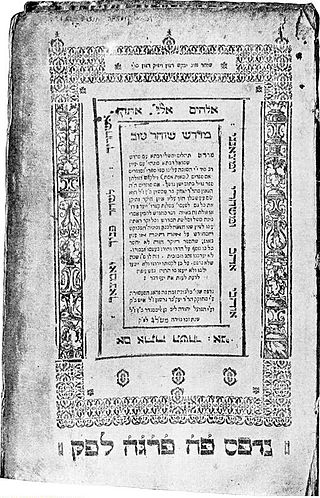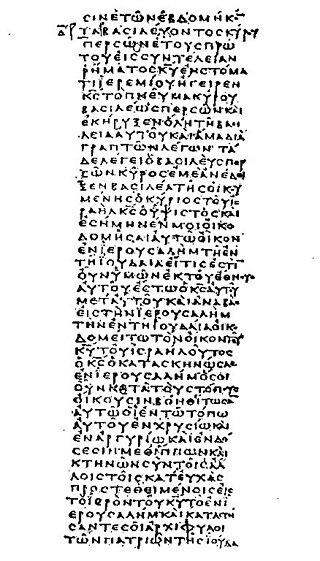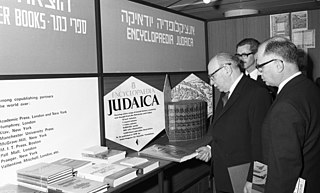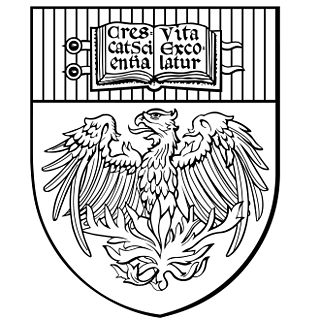
Midrash is expansive Jewish Biblical exegesis using a rabbinic mode of interpretation prominent in the Talmud. The word itself means "textual interpretation", "study", or "exegesis", derived from the root verb darash (דָּרַשׁ), which means "resort to, seek, seek with care, enquire, require", forms of which appear frequently in the Hebrew Bible.

The Septuagint, sometimes referred to as the Greek Old Testament or The Translation of the Seventy, and often abbreviated as LXX, is the earliest extant Greek translation of the Hebrew Bible from the original Hebrew. The full Greek title derives from the story recorded in the Letter of Aristeas to Philocrates that "the laws of the Jews" were translated into the Greek language at the request of Ptolemy II Philadelphus by seventy-two Hebrew translators—six from each of the Twelve Tribes of Israel.

The Masoretic Text is the authoritative Hebrew and Aramaic text of the 24 books of the Hebrew Bible (Tanakh) in Rabbinic Judaism. The Masoretic Text defines the Jewish canon and its precise letter-text, with its vocalization and accentuation known as the mas'sora. Referring to the Masoretic Text, masorah specifically means the diacritic markings of the text of the Jewish scriptures and the concise marginal notes in manuscripts of the Tanakh which note textual details, usually about the precise spelling of words. It was primarily copied, edited, and distributed by a group of Jews known as the Masoretes between the 7th and 10th centuries of the Common Era (CE). The oldest known complete copy, the Leningrad Codex, dates from the early 11th century CE.
Partial Bible translations into languages of the English people can be traced back to the late 7th century, including translations into Old and Middle English. More than 100 complete translations into English have been produced. A number of translations have been prepared of parts of the Bible, some deliberately and some projects have been abandoned.
Moshe Greenberg was an American rabbi, Bible scholar, and professor emeritus of the Hebrew University of Jerusalem.
A Torah database is a collection of classic Jewish texts in electronic form, the kinds of texts which, especially in Israel, are often called "The Traditional Jewish Bookshelf" ; the texts are in their original languages. These databases contain either keyed-in digital texts or a collection of page-images from printed editions. Given the nature of traditional Jewish Torah study, which involves extensive citation and cross-referencing among hundreds of texts written over the course of thousands of years, many Torah databases also make extensive use of hypertext links.

The Encyclopaedia Judaica is a 22-volume English-language encyclopedia of the Jewish people, Judaism, and Israel. It covers diverse areas of the Jewish world and civilization, including Jewish history of all eras, culture, holidays, language, scripture, and religious teachings. First completed in 1971–1972, the encyclopedia had been published in two editions by 2010, accompanied by a few revisions.

The Leningrad Codex is the oldest complete manuscript of the Hebrew Bible in Hebrew, using the Masoretic Text and Tiberian vocalization. According to its colophon, it was made in Cairo in AD 1008.
Jewish studies is an academic discipline centered on the study of Jews and Judaism. Jewish studies is interdisciplinary and combines aspects of history, Middle Eastern studies, Asian studies, Oriental studies, religious studies, archeology, sociology, languages, political science, area studies, women's studies, and ethnic studies. Jewish studies as a distinct field is mainly present at colleges and universities in North America.

The Herbert D. Katz Center for Advanced Judaic Studies at the University of Pennsylvania—commonly called the Katz Center—is a postdoctoral research center devoted to the study of Jewish history and civilization.

Lawrence Harvey Schiffman is a professor at New York University ; he was formerly Vice-Provost of Undergraduate Education at Yeshiva University and Professor of Jewish Studies. He had previously been Chair of New York University's Skirball Department of Hebrew and Judaic Studies and served as the Ethel and Irvin A. Edelman Professor in Hebrew and Judaic Studies at New York University (NYU). He is currently the Judge Abraham Lieberman Professor of Hebrew and Judaic Studies at New York University and Director of the Global Institute for Advanced Research in Jewish Studies. He is a specialist in the Dead Sea Scrolls, Judaism in Late Antiquity, the history of Jewish law, and Talmudic literature.

The University of Chicago Press is the largest and one of the oldest university presses in the United States. It is operated by the University of Chicago and publishes a wide range of academic titles, including The Chicago Manual of Style, numerous academic journals, and advanced monographs in the academic fields.

Emanuel Tov, is a Dutch–Israeli biblical scholar and linguist, emeritus J. L. Magnes Professor of Bible Studies in the Department of Bible at the Hebrew University of Jerusalem. He has been intimately involved with the Dead Sea Scrolls for many decades, and from 1991, he was appointed Editor-in-Chief of the Dead Sea Scrolls Publication Project.
Hebrew Bible English translations are English translations of the Hebrew Bible (Tanakh) according to the Masoretic Text, in the traditional division and order of Torah, Nevi'im, and Ketuvim. Most Jewish translations appear in bilingual editions (Hebrew–English).

Dropsie College for Hebrew and Cognate Learning or Dropsie University, at 2321–2335 N Broad St., Philadelphia, Pennsylvania, was America's first degree-granting institution for post-doctoral Jewish studies. Funded by the will of Moses Aaron Dropsie (1821–1905), it was chartered in 1907, and its first building was completed in 1912. It ceased to grant degrees in 1986.
Jewish commentaries on the Bible are biblical commentaries of the Hebrew Bible from a Jewish perspective. Translations into Aramaic and English, and some universally accepted Jewish commentaries with notes on their method of approach and also some modern translations into English with notes are listed.
Biblical software or Bible software is a group of computer applications designed to read, study and in some cases discuss biblical texts and concepts. Biblical software programs are similar to e-book readers in that they include digitally formatted books, may be used to display a wide variety of inspirational books and Bibles, and can be used on portable computers. However, biblical software is geared more toward word and phrase searches, accessing study bible notes and commentaries, referencing various modern translations, cross-referencing similar passages and topics, biblical dictionaries, original language texts and language tools, maps, charts, and other e-books deemed relevant to understanding texts from a philological approach.

The NLT Study Bible was released in September, 2008, by Tyndale House Publishers, Inc. following a decade long process from original conception to publication. A Genesis "sampler" was released in April of the same year. Featuring a brand new set of notes and features put together by what Tyndale calls "a dream team of today's top Bible scholars", the NLT Study Bible "focuses on the meaning and message of the text as understood in and through the original historical context." In print form, the NLT Study Bible contains 2528 pages of material. It is also available in electronic form on multiple software platforms.
Bernard Malcolm Levinson serves as Professor of Classical and Near Eastern Studies and of Law at the University of Minnesota, where he holds the Berman Family Chair in Jewish Studies and Hebrew Bible. He is the author of Deuteronomy and the Hermeneutics of Legal Innovation, "The Right Chorale": Studies in Biblical Law and Interpretation, and Legal Revision and Religious Renewal in Ancient Israel; and is the co-editor of The Pentateuch as Torah: New Models for Understanding Its Promulgation and Acceptance. He has published extensively on biblical and ancient Near Eastern law and on the reception of biblical literature in the Second Temple period. His research interests extend to early modern intellectual history, constitutional theory, the history of interpretation, and literary approaches to biblical studies.
A biblical canon is a set of texts which a particular Jewish or Christian religious community regards as part of the Bible.









